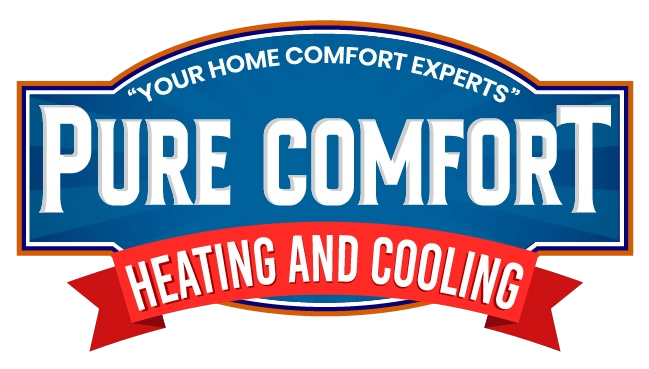Buying your first home is an exhilarating experience. You’re likely juggling numerous details to ensure you’re making the right choice. We believe that understanding your potential new HVAC system is vital. The property’s HVAC system represents a substantial investment and potential source of long-term costs, so being thorough is important for first-time homebuyers.
In the following guide, we’ll outline seven tips for learning everything you can about a home’s heating and cooling system. And if you want a more in-depth opinion from the pros, don’t hesitate to contact Pure Comfort Heating and Air Conditioning. Our seasoned technicians can weigh in on your options with industry insights that are second to none.
1. What HVAC System Are You Working With?
Start by clarifying what specific HVAC system the home includes. Furnaces generally last longer than air conditioners, and relatively new types of HVAC products like heat pumps boast average life spans that are impressively long. Getting the details on the make and specific model ensures you have a clear idea of how much routine maintenance it might need.
2. How Long Ago Was the System Installed?
It also helps to learn how old the HVAC system is when you’re looking at a potential new home. In general, HVAC systems tend to run for about 10-12 years. Learning its approximate installation date helps you prepare for any needed servicing or considerations if it might shut down for good. Older systems are at a higher risk of problems, so fiscal planning for a replacement unit could be necessary sooner than you thought.
3. What Does the Warranty Cover?
Check if the HVAC system is covered by a warranty. If it is, you’ll appreciate how it can assist with maintenance costs. HVAC warranties typically include parts and labor, but the details in each policy will vary. Don’t forget to look into any terms you don’t recognize to make sure you fully understand your coverage and any possible out-of-pocket costs.
4. Does the System Have a Documented Maintenance History?
Don’t forget to check the maintenance history of the HVAC system, if that information is accessible. This service history can demonstrate if the system constantly broke down or how much upkeep was provided. Inquire about key tasks like filter changes, which is a positive sign indicating regularly scheduled tune-ups.
5. Do You Know Its Energy Efficiency Ratings?
Selecting a system with great energy efficiency means smaller utility bills and a smaller environmental impact. Check out the seasonal energy efficiency ratio (SEER) ratings for air conditioning as well as the annual fuel utilization efficiency (AFUE) for furnaces. Higher SEER ratings mean better cooling across the entire season, while high AFUE ratings indicate that the fuel is more effectively burned for useable heat.
6. Did You See Any Problems During Your Inspection?
Even if you don’t have experience in HVAC systems, it’s still a good idea to inspect the HVAC system yourself. Keep an eye out for potential issues that haven’t been mentioned by the seller. This includes strange noises, unequal airflow and attempts to cover up any obvious damage.
7. Have You Sought Out Expert Advice?
If you’re not quite sure about the overall state of the HVAC system, it’s wise to get a professional opinion from trained HVAC technicians. They can spot things you might miss, including refrigerant leaks, wiring issues or damaged ductwork.
A Consultation with Pure Comfort Heating and Air Conditioning Helps Take the Stress Out of Your Home-Buying Journey
Choosing your first home is meant to be a joyful event, and Pure Comfort Heating and Air Conditioning wants to ensure that doesn’t change. Get in touch with us at 630-948-4591. We can talk about how our HVAC services help make this process smoother, giving you what you need to make an offer with confidence.

